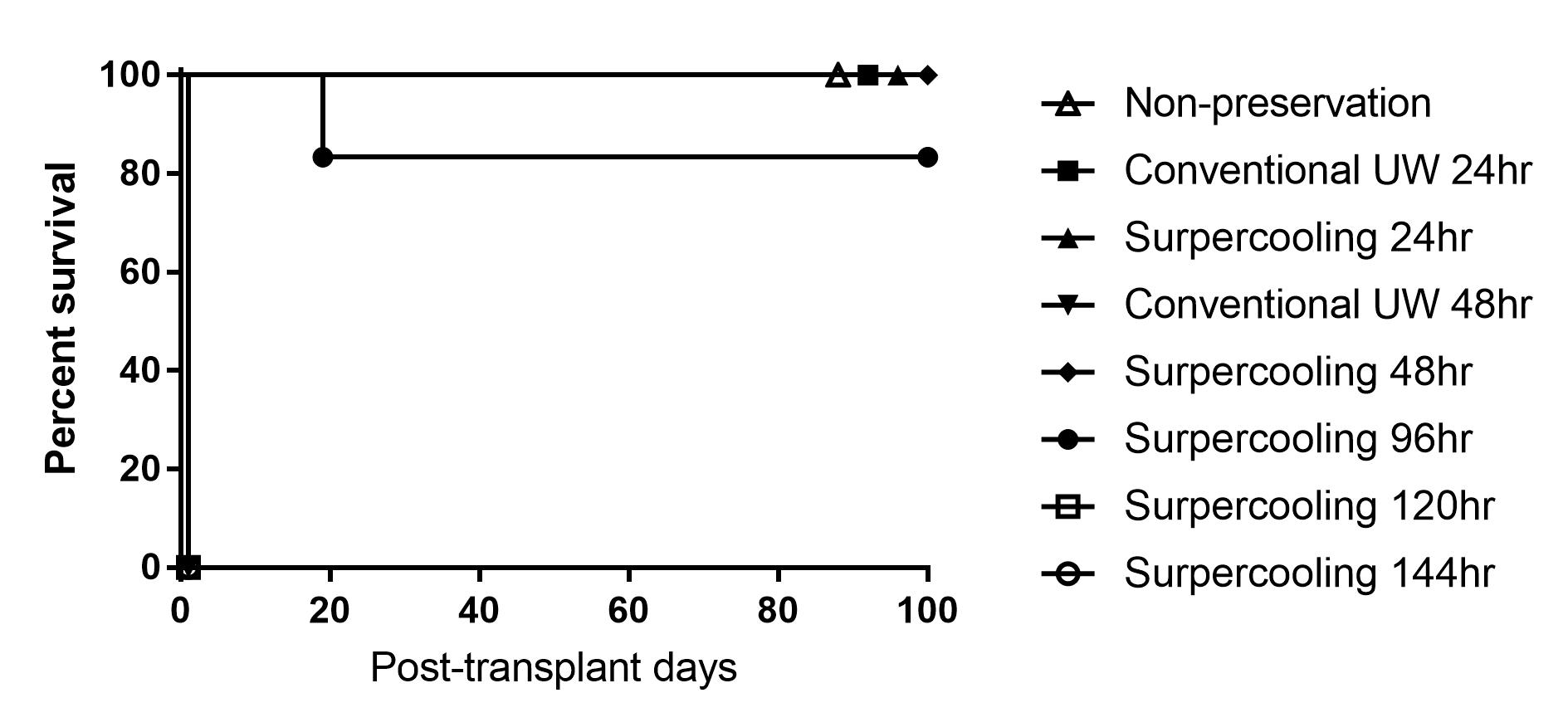Supercooling Preservation Prolonged Mouse Cardiac Graft Cold Ischemia Time
1Division of Transplantation Immunology, National Research Institute for Child Health and Development, Tokyo, Japan, 2Technican Co., Ltd., Kanagawa, Japan, 3Department of Surgery, Shanghai General Hospital, shanghai Jiao Tong University School of Medicine, Shanghai, China
Meeting: 2019 American Transplant Congress
Abstract number: D371
Keywords: Graft survival, Heart preservation, Ischemia, Preservation solutions
Session Information
Session Name: Poster Session D: Late Breaking
Session Type: Poster Session
Date: Tuesday, June 4, 2019
Session Time: 6:00pm-7:00pm
 Presentation Time: 6:00pm-7:00pm
Presentation Time: 6:00pm-7:00pm
Location: Hall C & D
*Purpose: Supercooling preservation techniques store a donor organ below 0°C without freezing. This has great advantages in inhibiting metabolism and preserving the organ in comparison to conventional preservation at 4°C. We developed a novel supercooling technique, using a liquid cooling apparatus and novel preservation and perfusion solutions. The purpose of this study was to evaluate the preservation effect of our supercooling preservation technique in a mouse heart transplantation model.
*Methods: Syngeneic heterotopic heart transplantation was performed in three groups of mice: (1) the non-preservation group, in which the cardiac grafts were transplanted immediately after harvesting; (2) the conventional UW (University of Wisconsin solution) group, in which the cardiac grafts were stored in UW solution at 4°C for different periods of time; and (3) the supercooling group, in which the cardiac grafts were stored in a novel supercooling preservation solution at -8°C for different periods of time. The maximal preservation time was investigated. Twenty-four-hour sample data were collected and analyzed to compare the heart graft protection effect of supercooling to conventional UW preservation at 4°C.
*Results: Our technique yielded a stable -8 °C supercooling preservation state, and cardiac graft revival was successfully achieved after preservation for 144 h, long-term survival was observed after preservation for 96 h. The preservation outcomes, including rebeating time, ATP level, myocardial enzyme release, inflammation, neutrophil infiltration, myocardial ultrastructure, myocardial edema, ischemia-reperfusion injury, oxidative stress and myocardial apoptosis, were also improved in the supercooling group.
*Conclusions: Supercooling heart preservation at -8°C greatly prolonged the preservation time and improved the post-transplant outcomes in comparison to conventional 4°C UW preservation. Supercooling preservation is a promising technique for organ preservation.
To cite this abstract in AMA style:
Que W, Hu X, Fujino M, Yamada Y, Zhong L, Li X. Supercooling Preservation Prolonged Mouse Cardiac Graft Cold Ischemia Time [abstract]. Am J Transplant. 2019; 19 (suppl 3). https://atcmeetingabstracts.com/abstract/supercooling-preservation-prolonged-mouse-cardiac-graft-cold-ischemia-time/. Accessed March 4, 2026.« Back to 2019 American Transplant Congress


